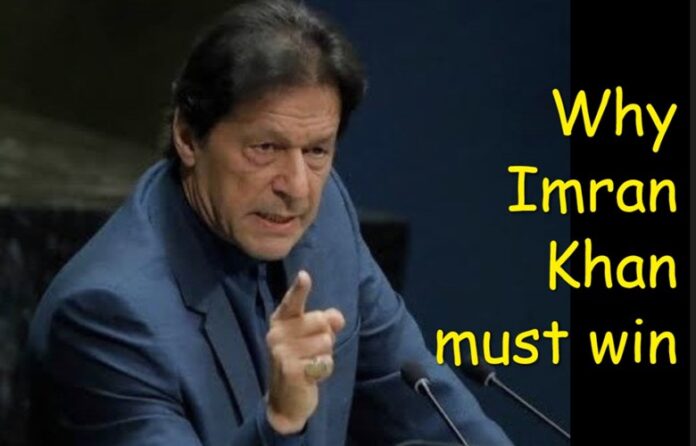Best Leaders know that challenges are opportunities wrapped in ugly wrapping papers.
The newly emerging strategic threats by superpowers to the national integrity and sovereignty has emboldened Imran Khan further to muster his patriotic spirits to counter the storm kicked up by the vote of no-confidence and the Washington Cable. Khan has acted as a lone wolf who is up against internal and external forces of status quo.
His entry into politics was based on his commitments to end this very status quo, which he believes, has subjugated the country for decades. But a lack of in-house support from opposition and allies had all but stalled his momentum for reforms , civilian superiority, and an independent foreign policy.
The 5th generation warfare:
Wars are no longer won at the borders. It isn’t the army and the armoury that decides the fate of countries in modern times. Superpowers like former USSR (Union of Soviet Socialist Republics) invaded a much smaller and weaker Afghanistan in the early 80s. Despite huge collateral damage and human casualties it could not win the borders as well as the hearts of the people. It left Afghanistan in February 1989 – with disgrace brought upon by its archrival America and allies. The U.S did not send its troops directly but used its diplomatic and strategic resources to defeat USSR.
Again, the same nation, Afghanistan was invaded by the USA on the pretext of the 9/11 attacks. After almost 20 years – that cost it nearly 2.5 trillions of dollars – US had to leave as a face-saving without any military solution to the war it imposed.
Lately, the new world order now rests on the 5th generation warfare instead of bombs, tanks, and army. The modus operandi is to bribe local populations, buy facilitators among opposition leaders, judiciary, the media houses, and the civil bureaucracy. All that is carried out by well-conceived programs charted out by think tanks.
The new doctrine is to use diplomacy instead of weapons to ruin the countries for achieving objectives. The preliminary part of incursion is always to pursue a regime change. Pakistan has been the latest victim of this interventionist U.S approach on a country like Pakistan.
The explicit act of meddling – as claimed by Imran Khan – is financially, morally, and logistically supported – one would assume – by our neighbor India–being a member of the Indo-Pacific Quad alliance (comprising US, Australia, Japan) The ultimate focus of the nexus is to counter the growing influence of mighty China and Russia in the region.
This can plausibly be my wishful thinking, but the optimism of many is still alive. Emerging as victorious, Khan’s future priorities could expectedly be premised on the following approach:
A Long-overdue “system overhaul”
The economy is currently in depression, the burgeoning debts and rising inflation is another ticking bomb. The 18th amendment’s looming threat to the integrity of federation and has provided ammunition to the enemies to exploit Pakistan’s internal fault lines.
Enough is enough. The system requires a major reset now. Pakistan has reached its elastic limit of being played with a “Russian roulette” Corrupt and subservient bureaucracy and judiciary have done irreparable damage to the state’s foundations.
Pakistan’s integrity and existence is at stake not only because of external drivers but also because of its own ruling elites – the strong status quo lowly clique of conjurers who have sold the motherland’s sanctity to the enemies for dollars.
Imran Khan’s latest display of pent-up courage speaks volumes about his future course of drastic actions after dousing the fire of the current rebellion within his party. A move – inspired by sources abroad – clearly provided the prime minister the opportunity to expose people he thinks have been instrumental in attempts of a regime change.
Now his eyes are on next elections which he hopes to win with bigger majority. It is nevertheless unclear what sort of institutional and political hurdles he might confront on the way to the next polls.
What might be his next challenges if he returns to power at all? The forces of the status quo are deeply entrenched and aligned against a leader who wants to pursue an independent foreign policy and break the cycle of the elite capture in Pakistan.




